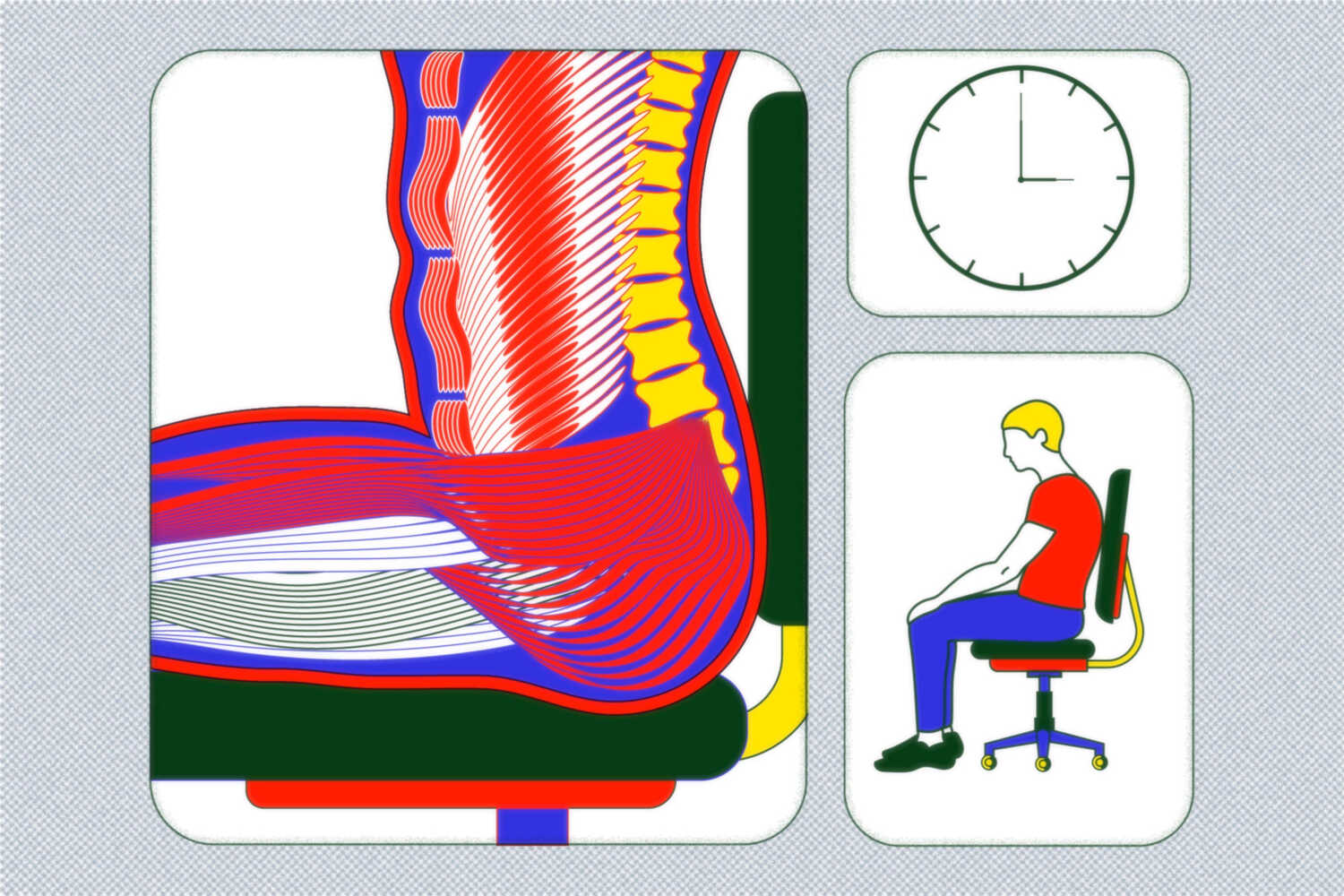The name might make you snicker, but addressing “gluteal amnesia” can help you avoid chronic pain.
After a long workday at your desk or hours in a car, it’s normal to feel a little stiff. It may just be that your hip flexors and lower back are tight. But you could also be experiencing a potentially debilitating condition called gluteal amnesia, or dead butt syndrome.
“The name sounds silly, but the side effects are serious,” said Jane Konidis, a specialist in physical medicine and rehabilitation at the Mayo Clinic in Rochester, Minn. “The gluteus maximus is one of the strongest muscles in the body and biggest shock absorbers,” she said. “If it’s not working properly, it can cause a domino chain of issues, from hamstring tears and sciatica to shin splints and arthritis in the knees.”
Gluteal amnesia happens when the muscles in your rear become so weak from inactivity they seem to forget how to function — meaning they fail or become slow to activate. This is different than a leg or arm “falling asleep” because of a compressed nerve; you won’t feel pins and needles. Some people may feel a dull ache while sitting, but most people don’t feel any pain until they go for a jog or hike.
Sluggish glutes can result in other muscles and joints, especially in the lower back and knees, picking up the slack, Dr. Konidis said. The pain can especially impact runners and rotational athletes, like golfers and tennis players. (Tiger Woods has been forced to bow out of competitions because of the condition.)
Just like learning to engage your core, learning to fire the glutes can prevent this. But it doesn’t come naturally to most people, even those who have a strong butt. If you spend hours sitting, it’s important to learn to recognize when your glutes are turned off and how to get them working again.
What causes the butt to shut down
Your glutes are actually three muscles on the outside and back of your hips that stabilize the hip, lift the leg and rotate the thigh. Together, they act as a base to the spine, keeping the pelvis and core stable, Dr. Konidis said.
